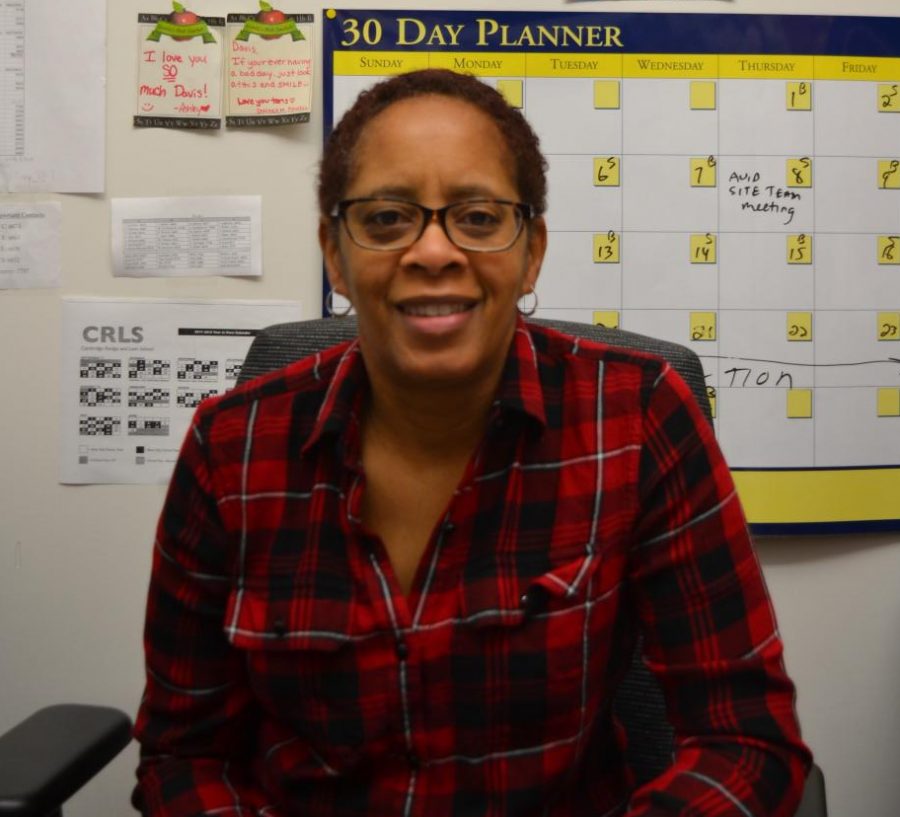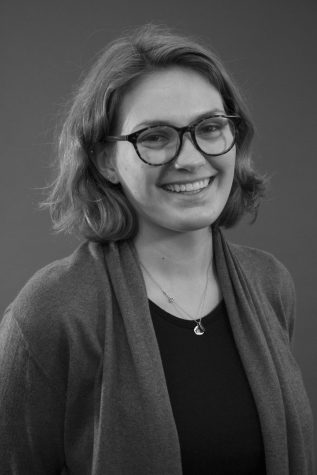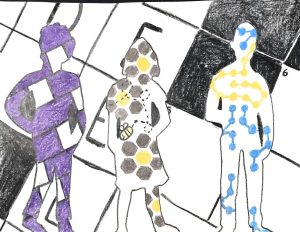Behind the Scenes: Facts of the Day at CRLS
February 26, 2018
Good morning, CRLS! Today is February 1st, the first day of Black History Month. Here is today’s fact.”
Every February, CRLS students and staff recognize the voice of AVID coordinator Ms. Davis as she acknowledges Black History Month over the intercom. Ms. Davis’s routine is simple: provide a clue about a famous person in black history, wait a few seconds while listeners take a guess at who she refers to, and then reveal the name of the figure. This year, the Register Forum sat down with Ms. Davis to find out more about the tradition of “Black History Facts for Black History Month” at Rindge. This interview has been edited for clarity and concision.
Register Forum: How long have you been doing Black History Facts?
Leslie Davis: I’ve been doing it for ten or twelve years. I can’t remember when I started, but it’s been a long time. I’ve been at the high school since ’03, and [I started it] probably sometime soon after I got it here.
RF: What made you want to start Black History Facts at CRLS?
LD: I’ve got to be honest, I can’t remember the origin of it, but I know it did start with doing facts. I can’t tell you the seed, but I know it stemmed from this yearning desire to always be involved with whatever type of celebration was going to happen in whatever the school I’m in for Black History Month, and not letting it go without rightful due.
RF: How do you pick the facts? Do other people help choose?
LD: Mr. Parker [who used to teach at CRLS], he and I go way back, since the Baldwin. So I had been doing it, probably for about five or six years, and he came up to me and he said, ‘Ms. Davis, those facts are too easy.’ And I’ve gone back and forth each year with trying to make it accessible to kids and trying not to make it too easy for them so that the adults can be a part of it too. It’s hard to find that balance with doing something really easy that everybody knows or trying to give them facts that are random and no one would ever know and losing the attention of everybody because of that. I guess in hindsight I wish I’d gotten more feedback from people to see what they really want. Do they want people they’ve never heard of? Do they want to be engaged and listen? Because as I walk around, I get all kinds of feedback like that, but I don’t ask questions. I get comments like, ‘Oh, I knew that person!’ or ‘I don’t know that person,’ or ‘I couldn’t hear you this morning!’ … This year I decided to throw [the facts from past years] all out and go and get a fact a day off the internet and maybe use it, maybe not. …
RF: Overall, what do you hope that students or staff listening to the facts take away?
LD: I hope that they see that this school is paying attention to Black History Month. I hope that they can appreciate…I guess, that there’s good history out there for blacks and what they’ve accomplished, both way back then and even now—because I try to do current facts. I hope that students, too, can appreciate that this month is important. Those are some of the things I hope.
RF: What would be your favorite fact that you’ve shared or your favorite part of doing this?
LD: I don’t necessarily have a fact that I can remember, but one thing that I do enjoy is down [in the main office], sometimes Mr. Smith, Mr. Tynes, or the secretaries are around me, and I can see them [say to each other] like, ‘You missed twice!’ I see them, and if they get it, I enjoy that engagement with them while I’m sitting in there.
RF: Is there anything else you would want people to know?
LD: Wherever I’ve been, it’s always been appreciated that I do this, and I always felt a warm reception from everyone about it. I really appreciate that about this whole experience. I just really want people to enjoy it, and if that happens, then it’s like, ‘Check that box off.’ It’s worth it, for me anyways.
This piece also appears in our February print edition.










